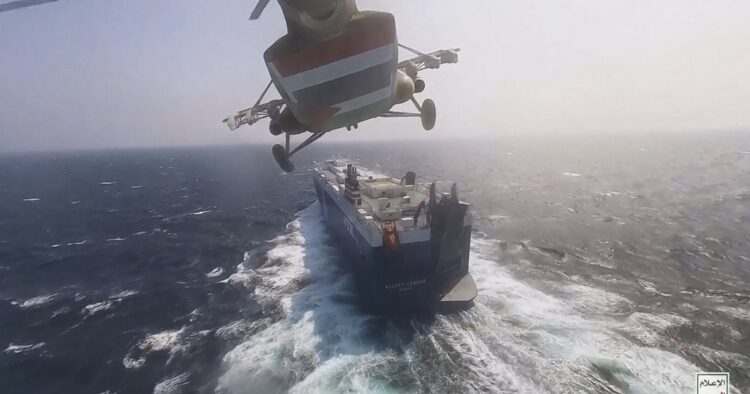In a significant move, the United Nations Security Council has passed a resolution urging Yemen’s Houthi rebels to cease attacks on ships in the Red Sea. The council demands the immediate release of the Japanese-operated Galaxy Leader, seized by the Houthis last year. The resolution received support from eleven members, including the United States and Japan, while four members – Algeria, China, Mozambique, and Russia – abstained.
The resolution emphasizes the need for the Iran-aligned Houthi rebels to halt all attacks that disrupt global commerce, impede navigational rights, and threaten regional peace. The United States, which sponsored the resolution alongside Japan, highlights the international community’s call for an end to the attacks.
“The world’s message to the Houthis today was clear: Cease these attacks immediately,” stated Linda Thomas-Greenfield, the U.S. Ambassador to the United Nations. Notably, China and Russia, as permanent members with veto power, chose not to use their veto rights, allowing the resolution to pass.
Houthi Attacks and Rationale
The U.S. claims that the Iran-backed Houthis have carried out 26 attacks on commercial ships in the Red Sea since seizing the Galaxy Leader and its multinational crew in November. The Houthis argue that their attacks target Israeli-linked or Israel-bound vessels in protest against the ongoing conflict in Gaza. However, evidence suggests that many targeted ships have no discernible link to Israel, leading to concerns and disruptions in the region.
UN Resolution Endorses Defense Measures
A crucial provision of the resolution acknowledges the right of UN member states, in accordance with international law, to defend their vessels from attacks that undermine navigational rights and freedoms. This provision implicitly supports Operation Prosperity Guardian, a U.S.-led multinational naval task force established to defend commercial shipping from Houthi attacks. Norway, with one of the world’s largest shipping fleets, is among the nations participating in this operation.
Recent Houthi Attack and International Response
On the same day as the resolution, the U.S. military reported thwarting a “complex attack” by the Houthis, shooting down 21 missiles and drones in the southern Red Sea shipping lanes. The UK collaborated with the U.S. in countering what they described as the largest Houthi attack in the region. This incident underscores the ongoing challenges in the Red Sea and the international community’s commitment to ensuring free and safe navigation.
Houthi Response and Background
Mohammed Ali al-Houthi, the head of Yemen’s Houthi supreme revolutionary committee, dismissed the UN resolution as a “political game” and accused the U.S. of violating international law. The Houthis have been embroiled in a civil war with Yemen’s internationally recognized government since 2014. The Red Sea, a crucial maritime route connecting the Middle East and Asia to Europe, witnesses nearly 10 percent of global oil trade and an estimated $1 trillion in goods passing through its narrow straits each year. The resolution aims to address these concerns and maintain stability in the region.

















Comments